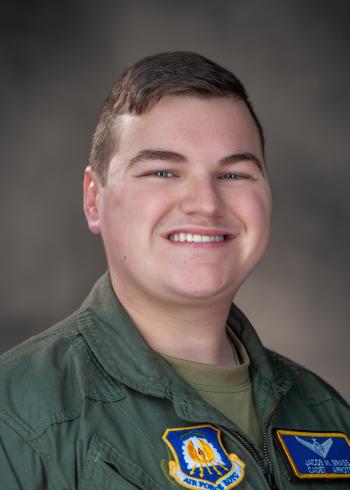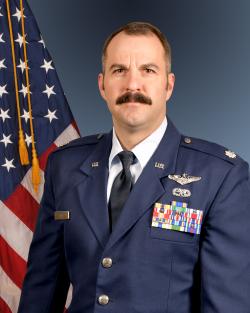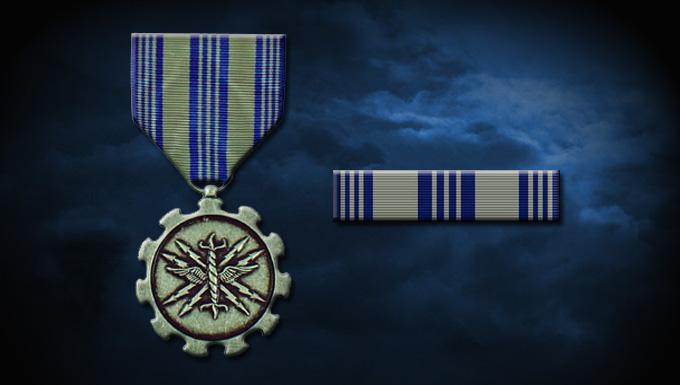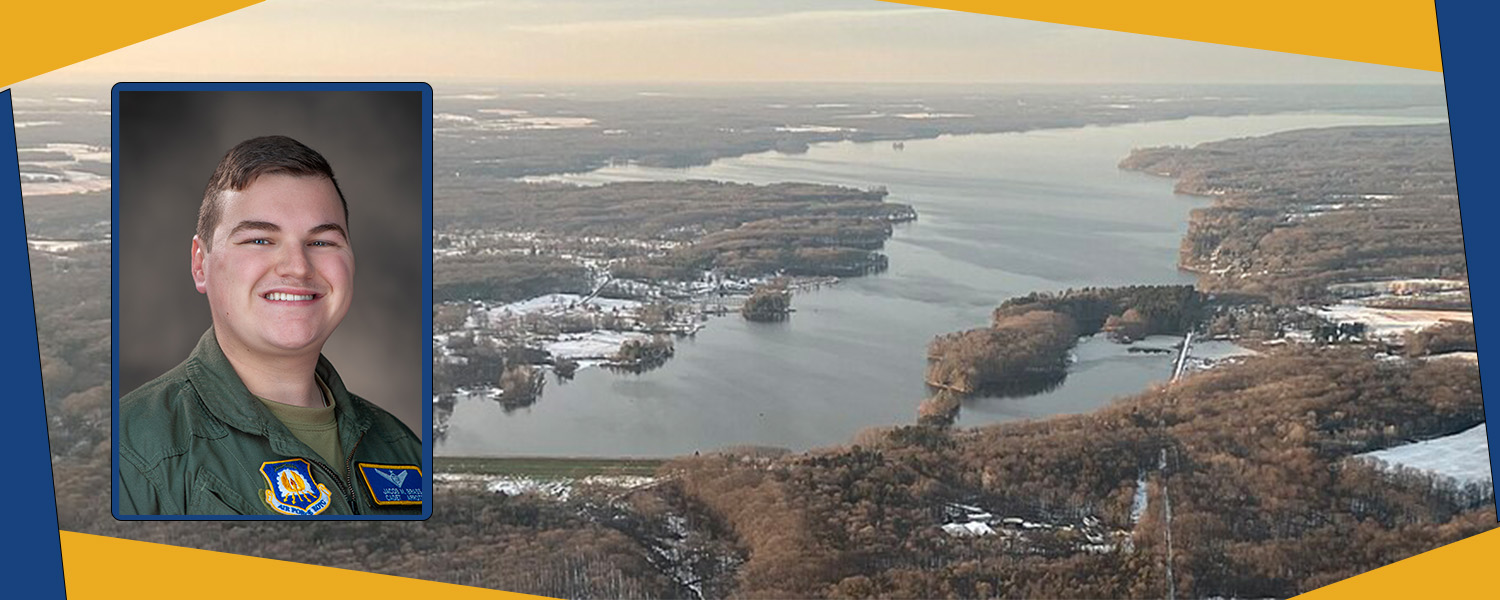It’s 2 a.m. on Pymatuning Lake in Pymatuning State Park. The air is cold, and the lake is around 45 to 50 degrees Fahrenheit. It’s the perfect setting for duck hunting, even though at that temperature, water can cause hypothermia or unconsciousness within an hour if you fall into it.

But when a boat capsized, Cadet 1st Lt. Jacob Brass used his military training to save four people without hesitation.
Brass, a senior integrative studies major at ������, is a member of the Air Force Reserve Officers’ Training Corps and a flight commander.
Every year, Brass and his family go duck hunting, and on opening day, they were running a little earlier than usual.
“We got down to the boat ramp at 1 a.m., and there were a few guys there,” Brass told Kent State Today. “They had a boat, just one, for four guys and all their equipment.” That equipment also included a dog.
Those four hunters and their canine companion headed out into the water. Brass, along with his father, uncle and cousin, did the same. About 45 minutes later, a light in the water began to flash in the distance.
“We get a little bit closer and start hearing somebody yelling, ‘Help, help us,’” Brass said.
The scene was clear: the boat had capsized, with two people splashing in the water while another two and the dog clung to the overturned boat.
In his boat, Brass’s uncle headed toward the two drifting away from the capsized boat while Brass and his father began the rescue of those clinging to the overturned vessel.
“We have a really small johnboat, so we couldn’t pull these guys in because we were already pretty heavy ourselves; we'd tip over,” Brass said. “So, what we decided to do was have them hang on their boat, and then we towed them basically to an island that was about maybe 100 yards away.”
For more than half an hour, Brass says, the two men and their dog sat in around 12 feet of water with the men wearing waders, a waterproof garment for the legs and body commonly worn on these excursions. When submerged, waders fill with water immediately, making them harder to remove and posing a risk of dragging someone under.
Once on land, Brass discovered a new problem. “One of the guys started going hypothermic,” Brass said. “So, I had him take off all his wet stuff, gave him my stuff to warm him up and started a fire.”
With an expected two-hour wait for help, Brass’s quick thinking ensured everyone was safe and their belongings were secured until the fire department arrived to safely escort the four men and their dog from the scene.

Brass’s commanding officer, Lt. Col. Gary Over, an instructor in aerospace studies and Air Force ROTC detachment commander, notified the university when this happened.
“Cadet Brass demonstrated calm leadership, sound judgment and decisive action under life-threatening conditions,” Over said.
Brass attributes his ability to provide proper care and attention in this situation directly to what he has learned through the Air Force ROTC program at Kent State.
“When you show up on a scene like that, if you start to panic, it’s not going to end well,” Brass said. “Really, just taking that step back and calmly assessing the situation to be able to say, ‘All right, the best course of action here is to tow their boat instead of dragging them onto our boat and possibly capsizing us.’”
It was through learned medical training called “tactical combat casualty care” that Brass says he was able to tell that one man was going hypothermic.
“These skills are everyday skills that could be used at any point in time, and you’re never going to expect it,” Brass said.
“His actions reflect great credit upon himself, Air Force ROTC Detachment 630, and ������,” Over wrote.
In recognition of his bravery, Brass received the Air and Space Achievement Medal, a U.S. Air Force award that recognizes personnel for outstanding achievement, exemplary service or acts of courage.

“Within the Air Force, our core values are integrity first, service before self and excellence in all we do,” Brass said. “We live that way outside, and I think it’s just an example. I know any of the people in that program would have done the same thing.”
Brass is set to commission in May as a pilot, heading off to pilot training next year with the goal of flying the Boeing C-17 Globemaster III, a large cargo aircraft designated for military transport. He also hopes to open his own flight school after his time in the service.
Recently, this rescue.
Learn more about Kent State's Air Force ROTC Detachment 630.

